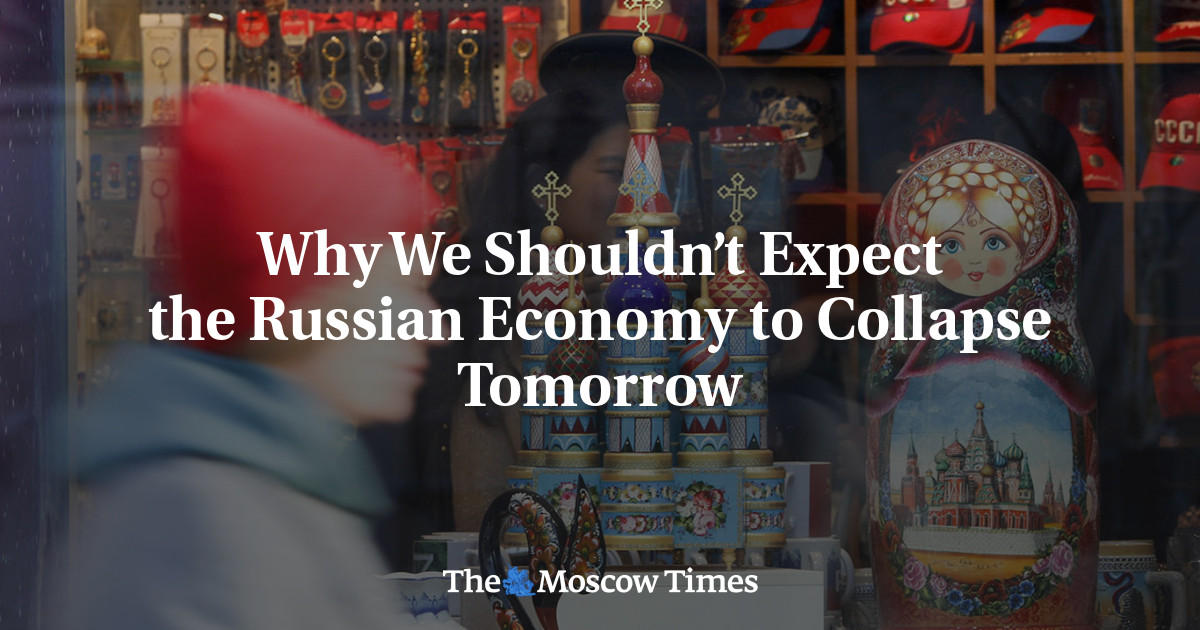
Last week, the head of the International Monetary Fund (IMF) Kristalina Georgieva predicted that sanctions on Russia would have “quite devastating” effects on its economy, which she said would shrink “by at least 7%.” This statement came out of the blue considering that the IMF recalibrated its Russian GDP forecast for 2023 in January, saying the fund expected it to grow by 0.3% instead of falling by a further 2.3%.
Of course, it's a stretch to call 0.3% growth. However, you don’t expect a country that is struggling under unprecedented sanctions pressure and is spending up to 10% of its GDP to fuel its war effort to boast such statistics. By comparison, Germany’s GDP is expected to go up by just 0.1% over the same period.
This “optimism” regarding the stability of Russia’s economy caused an uproar. The general public did not appreciate the IMF’s attempt to act in an unbiased manner, especially considering that other international institutions kept their forecasts the same: a 3-4% drop in GDP in 2023.
That’s why this time around Georgieva had to send a much clearer signal to the expert community.
The rebukes hurled at the IMF (and even more so, at Rosstat) are mostly justified. But they also expose the fact that those engaging in arguments about the effectiveness of sanctions often indulge in wishful thinking.
Analysts now can be roughly split into two camps. The first group believes that even if the Russian economy is not “torn to shreds” it is still undergoing a major crisis. The collapse was only averted due to efforts made by technocrats in the Russian government and the sluggishness of the West’s sanction machine. Give it a little more time and the noose will tighten.
The other camp — the skeptics — say “sanctions don’t work.” A year later, the Russian economy is yet to implode and still somehow manages to pay the ever-growing expenses of the war. It seems that Vladimir Putin’s regime is as strong as ever, while sanctions turned out to be weaker than market middlemen and the potential beneficiaries of the restrictions, namely India and China.
This point of view has gained traction in the last few months and attracted a response.
The sanctions, of course, are working. Russia’s budget deficit in the first two months of 2023 reached 88% of the total deficit planned for the coming year. The new formula for calculating oil and gas taxes and a “shakeout” of major businesses should improve the situation a little, but even cautious estimates say that the deficit will swell to 5-6 trillion rubles (61.75-74 billion euros) which is a very unfortunate turn of events for a Kremlin that has grown used to having a piggy bank. Unlike 2022, which brought about record-high windfall gains from selling oil and gas, 2023 will be a year of shrinking exports.
Medium-term losses in GDP and the standard of living for Russians will accumulate. The country is now pursuing “regressive import substitution” — a policy that rolls back production to the level of technologies used 20-30 years ago, while consumers are offered outdated goods for higher prices to substitute for the lost imports. The Russian government heralded this course back in 2014 but it has already brought about losses of tens of thousands of rubles for the average Russian family.
But does it mean that the IMF forecasts will definitely not come true, while Georgieva is broadcasting propaganda myths about Russia’s invincibility in the face of sanctions? Not at all.
Firstly, the 0.3% GDP growth can be ushered in through public spending and arms production even while consumption is deeply in the red. Secondly, even if the economy shrinks by a few percentage points, it will not drive the West closer to what they seek: Russia’s military defeat. This is exactly what those who offer a more cautious stance on the destructive nature of sanctions are saying.
Yes, this is an unprecedented blow dealt primarily to consumption. But the Kremlin’s reserves to keep the war going are still significant. The Russian economy has not even moved to the mobilization stage and largely still functions according to the old quasi-market rules.
It does not mean that sanctions are pointless. They do work and their effect is very noticeable. But it’s not the IMF’s fault that the Russian economy is still afloat.
It is crucial to understand that the West's economic leverage on Russia is not all-powerful and that even once the most effective measures have been implemented, expectations should be kept realistic.
This article was first published in Novaya Gazeta Europe.
The views expressed in opinion pieces do not necessarily reflect the position of The Moscow Times.
Why We Shouldn’t Expect the Russian Economy to Collapse Tomorrow - The Moscow Times
Read More
No comments:
Post a Comment